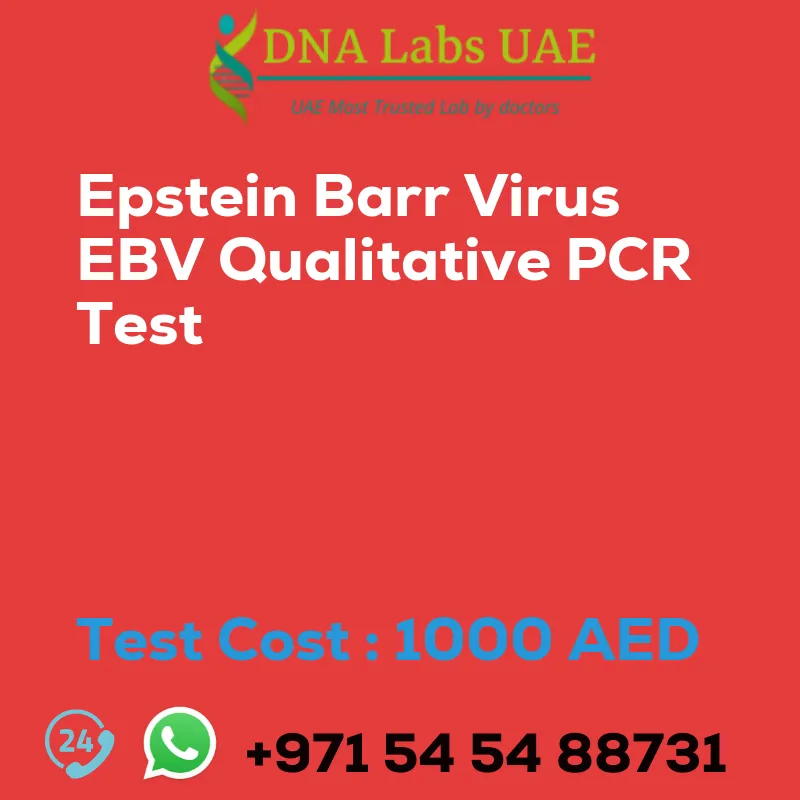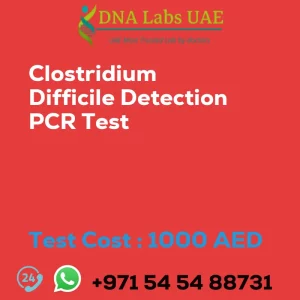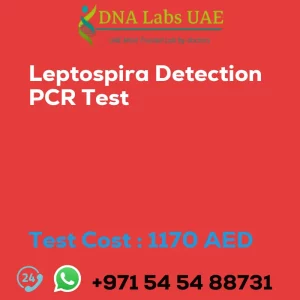EPSTEIN BARR VIRUS EBV QUALITATIVE PCR Test
Test Name: EPSTEIN BARR VIRUS EBV QUALITATIVE PCR Test
Components: Price: 1000.0 AED
Sample Condition: 3 mL (2 mL min.) whole blood from 1 Lavender Top (EDTA) tube OR 3 mL (2 mL min.) CSF in a sterile screw capped container. Ship refrigerated. DO NOT FREEZE.
Report Delivery: SampleMon / Thu by 11 am; Report Wed / Sat
Method: Real Time PCR
Test type: Infections
Doctor: Physician, Neurologist
Test Department: MOLECULAR DIAGNOSTICS
Pre Test Information: No special preparation required
Test Details
The Epstein-Barr virus (EBV) qualitative PCR test is a diagnostic test used to detect the presence of EBV in a person’s blood or tissue sample. EBV is a common virus that is responsible for causing infectious mononucleosis, also known as “mono” or “the kissing disease.” It can also lead to other health conditions, including certain types of cancer.
The qualitative PCR test works by amplifying and detecting specific DNA sequences of the EBV virus in the sample. It can accurately determine whether a person has an active EBV infection or has been previously exposed to the virus. The test is typically ordered when a healthcare provider suspects an EBV infection based on symptoms such as fatigue, fever, sore throat, swollen lymph nodes, and an enlarged spleen. It may also be used to diagnose other conditions associated with EBV, such as certain types of lymphoma or nasopharyngeal carcinoma.
The EBV qualitative PCR test is highly sensitive and specific, meaning it can accurately detect the presence of EBV in a sample and differentiate it from other similar viruses. It is often used in conjunction with other laboratory tests and clinical evaluations to confirm an EBV infection.
It is important to note that a positive EBV PCR test does not necessarily indicate an active infection, as the virus can remain dormant in the body for long periods of time without causing symptoms. Therefore, the test results should be interpreted in conjunction with a person’s clinical history and other diagnostic tests.
Overall, the EBV qualitative PCR test is a valuable tool in diagnosing EBV infections and related conditions, helping healthcare providers determine appropriate treatment plans and monitor the progression of the disease.
| Test Name | EPSTEIN BARR VIRUS EBV QUALITATIVE PCR Test |
|---|---|
| Components | |
| Price | 1000.0 AED |
| Sample Condition | 3 mL (2 mL min.) whole blood from 1 Lavender Top (EDTA) tube OR 3 mL (2 mL min.) CSF in a sterile screw capped container. Ship refrigerated. DO NOT FREEZE. |
| Report Delivery | SampleMon / Thu by 11 am; Report Wed / Sat |
| Method | Real Time PCR |
| Test type | Infections |
| Doctor | Physician, Neurologist |
| Test Department: | MOLECULAR DIAGNOSTICS |
| Pre Test Information | No special preparation required |
| Test Details |
The Epstein-Barr virus (EBV) qualitative PCR test is a diagnostic test used to detect the presence of EBV in a person’s blood or tissue sample. EBV is a common virus that is responsible for causing infectious mononucleosis, also known as “mono” or “the kissing disease.” It can also lead to other health conditions, including certain types of cancer. The qualitative PCR test works by amplifying and detecting specific DNA sequences of the EBV virus in the sample. It can accurately determine whether a person has an active EBV infection or has been previously exposed to the virus. The test is typically ordered when a healthcare provider suspects an EBV infection based on symptoms such as fatigue, fever, sore throat, swollen lymph nodes, and an enlarged spleen. It may also be used to diagnose other conditions associated with EBV, such as certain types of lymphoma or nasopharyngeal carcinoma. The EBV qualitative PCR test is highly sensitive and specific, meaning it can accurately detect the presence of EBV in a sample and differentiate it from other similar viruses. It is often used in conjunction with other laboratory tests and clinical evaluations to confirm an EBV infection. It is important to note that a positive EBV PCR test does not necessarily indicate an active infection, as the virus can remain dormant in the body for long periods of time without causing symptoms. Therefore, the test results should be interpreted in conjunction with a person’s clinical history and other diagnostic tests. Overall, the EBV qualitative PCR test is a valuable tool in diagnosing EBV infections and related conditions, helping healthcare providers determine appropriate treatment plans and monitor the progression of the disease. |








